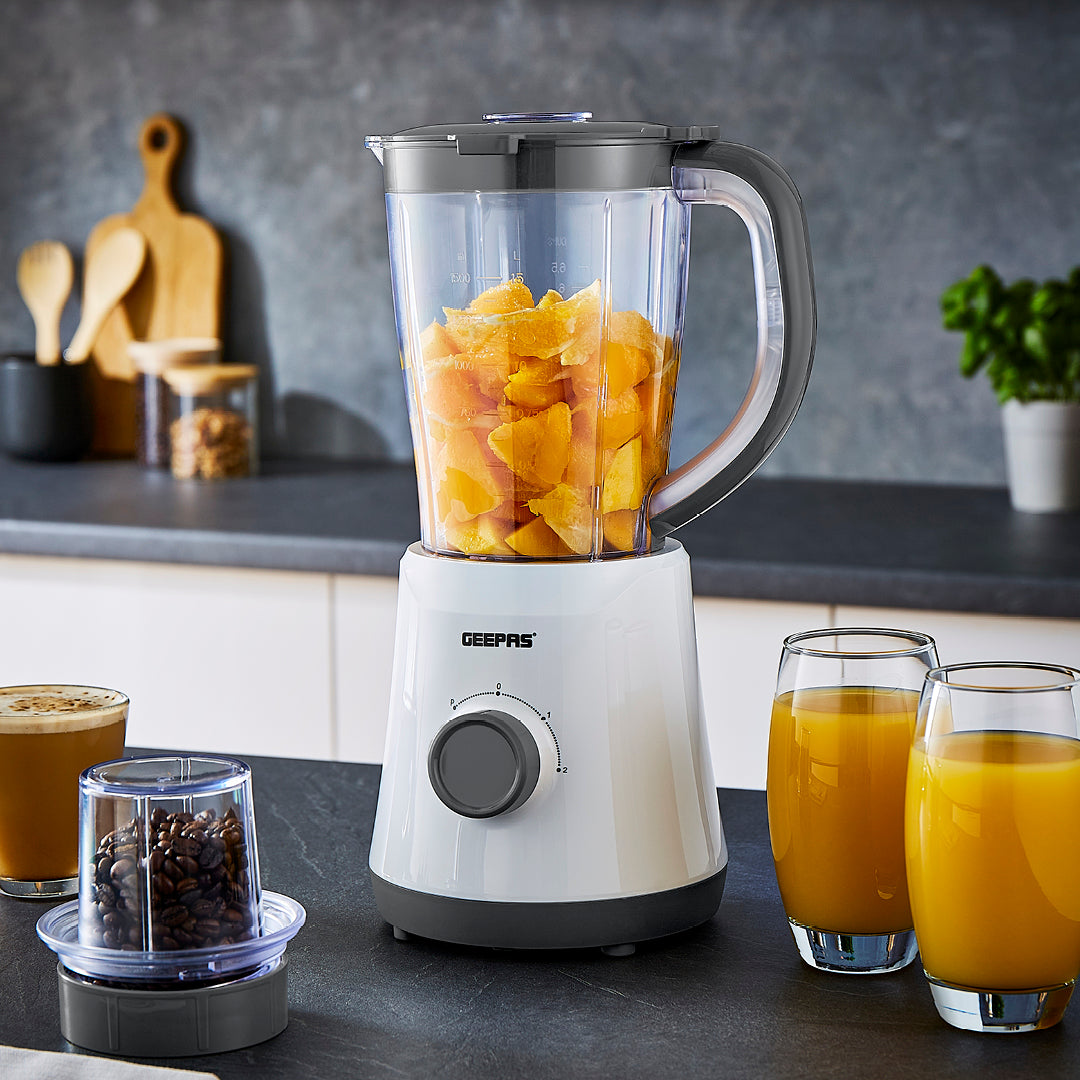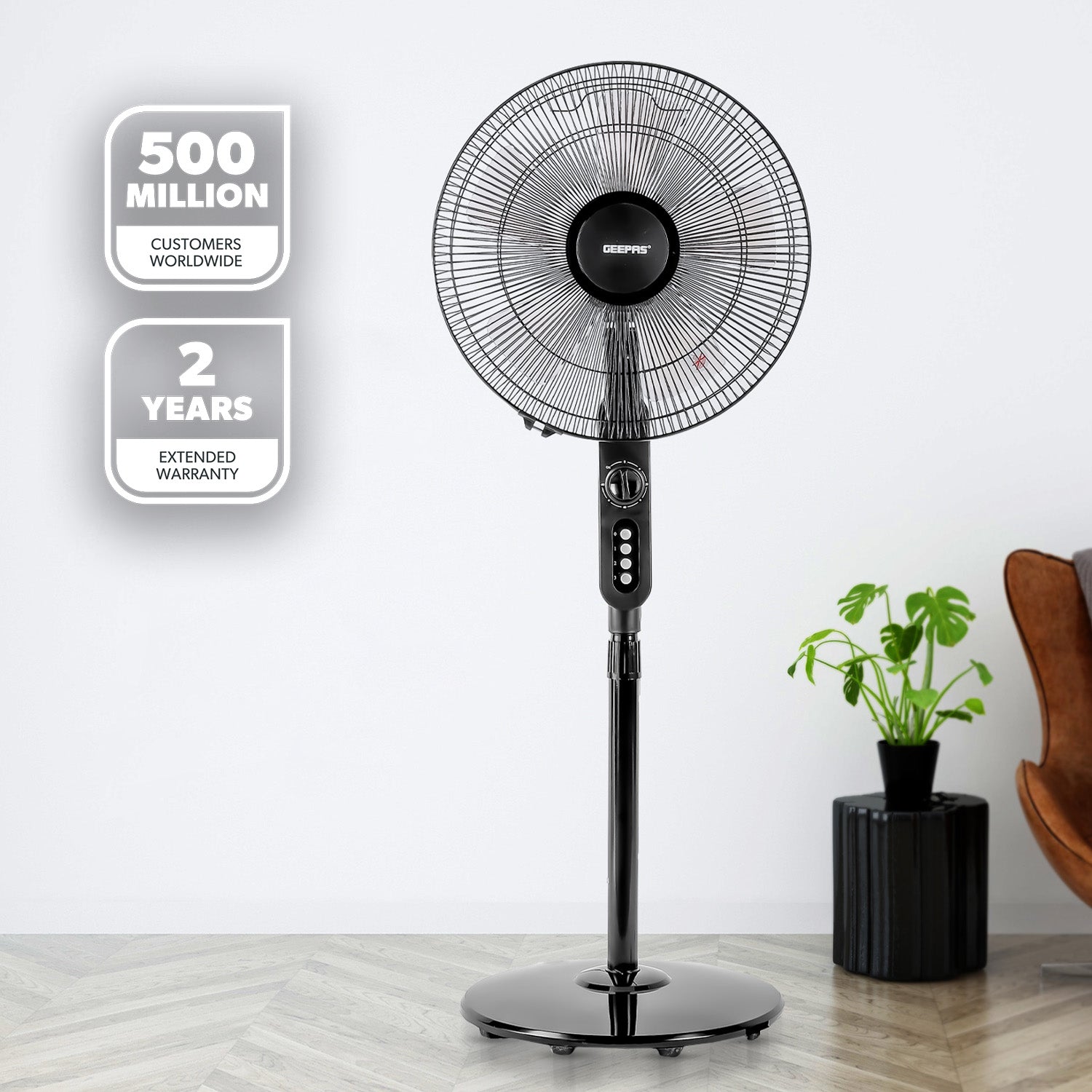Tower fans are a popular choice for keeping indoor spaces cool and comfortable. However, like any other home appliance, they accumulate dust and dirt over time, which can affect their performance and air quality.
Explore the Geepas tower fan collection
Regular cleaning not only ensures optimal efficiency but also extends the lifespan of your tower fan. In this guide, we'll walk you through the best methods to clean your tower fan, whether it's a bladeless, oscillating, or traditional tower fan.
Why Is It Important To Clean Your Tower Fan?
Over time, dust, pet hair, and other airborne particles can accumulate inside your tower fan, leading to several issues:
- Reduced airflow: Dust buildup can block air vents, reducing the fan's efficiency.
- Increased allergens: A dirty fan can circulate dust and allergens, affecting indoor air quality.
- Overheating risks: Excessive dust accumulation can strain the motor, leading to overheating.
- Unpleasant odours: A fan clogged with dust can emit musty or stale smells.
Cleaning your tower fan regularly helps maintain optimal performance, energy efficiency, and clean indoor air.
How Often Should You Clean Your Tower Fan?
- Light usage (occasional use): Clean every 2-3 months.
- Moderate usage (daily for a few hours): Clean every month.
- Heavy usage (all-day operation, homes with pets or allergies): Clean every 2 weeks.
Tools & Supplies You'll Need
Before you start, gather these essential tools for effective cleaning:
- Soft microfiber cloth
- Vacuum cleaner with brush attachment
- Small brush or old toothbrush
- Mild dish soap
- Warm water
- Screwdriver (if required for disassembly)
Step-By-Step Guide To Cleaning A Tower Fan
Step 1: Unplug the fan
Safety first! Always unplug your tower fan from the power source before cleaning to prevent electrical hazards.
Step 2: Remove surface dust
Using a microfiber cloth or a vacuum with a brush attachment, wipe down the exterior of the fan to remove dust. Pay attention to the air vents, as these tend to accumulate the most debris.
Step 3: Use compressed air for internal cleaning
For non-disassemblable tower fans, use a compressed air canister to blow out dust from the internal components. Hold the fan in an open area or near a door to prevent dust from settling back into the room.
Step 4: Vacuum or brush the air vents
Use a vacuum cleaner with a brush attachment or a small toothbrush to gently loosen and remove dust from the vent openings, grills, and oscillation vents.
Step 5: Disassemble for deep cleaning (if applicable)
Some models allow for disassembly:
- Check the user manual for instructions on how to safely remove the back panel or front grill.
- Use a screwdriver if necessary, ensuring you keep track of the screws.
- Once open, use a damp cloth or a brush to wipe down the fan blades and internal parts.
Step 6: Wash removable parts
If your fan has removable parts (such as grills or filters), wash them in warm soapy water, rinse thoroughly, and allow them to air dry completely before reattaching.
Step 7: Reassemble and final wipe down
Once everything is dry, reassemble the fan carefully and give it a final wipe-down with a clean, dry cloth.
Step 8: Test the fan
Plug the fan back in and turn it on to ensure it's running smoothly and efficiently. Enjoy cleaner, fresher airflow!
Tips To Keep Your Tower Fan Clean Longer
- Regular dusting: Wipe the exterior weekly to prevent heavy buildup.
- Use an air purifier: Reducing airborne dust can help keep your fan cleaner for longer.
- Place it in dust-free areas: Keep your fan away from pet hair, carpets, and high-dust zones.
- Store it properly: If not in use for long periods, cover it with a dust-proof cover or store it in a clean area.
Final Thoughts
Keeping your tower fan clean not only enhances its performance but also ensures that you breathe cleaner air. With regular maintenance and proper care, your fan will continue to provide efficient cooling for years to come. Follow these easy cleaning steps to enjoy a fresher and healthier indoor environment.
By maintaining your tower fan, you improve air circulation, energy efficiency, and overall indoor air quality - a small effort for a big impact on your home's comfort.




